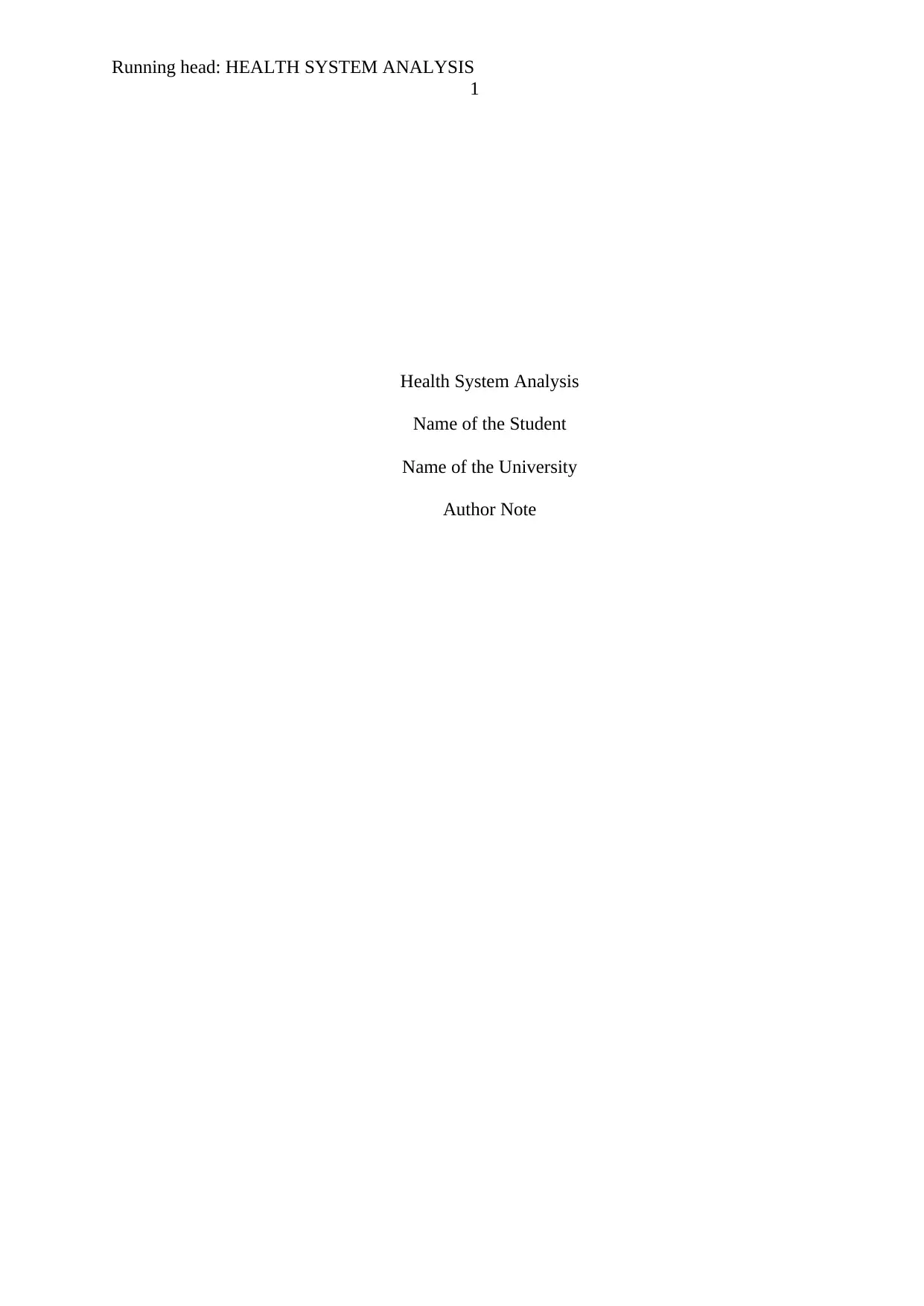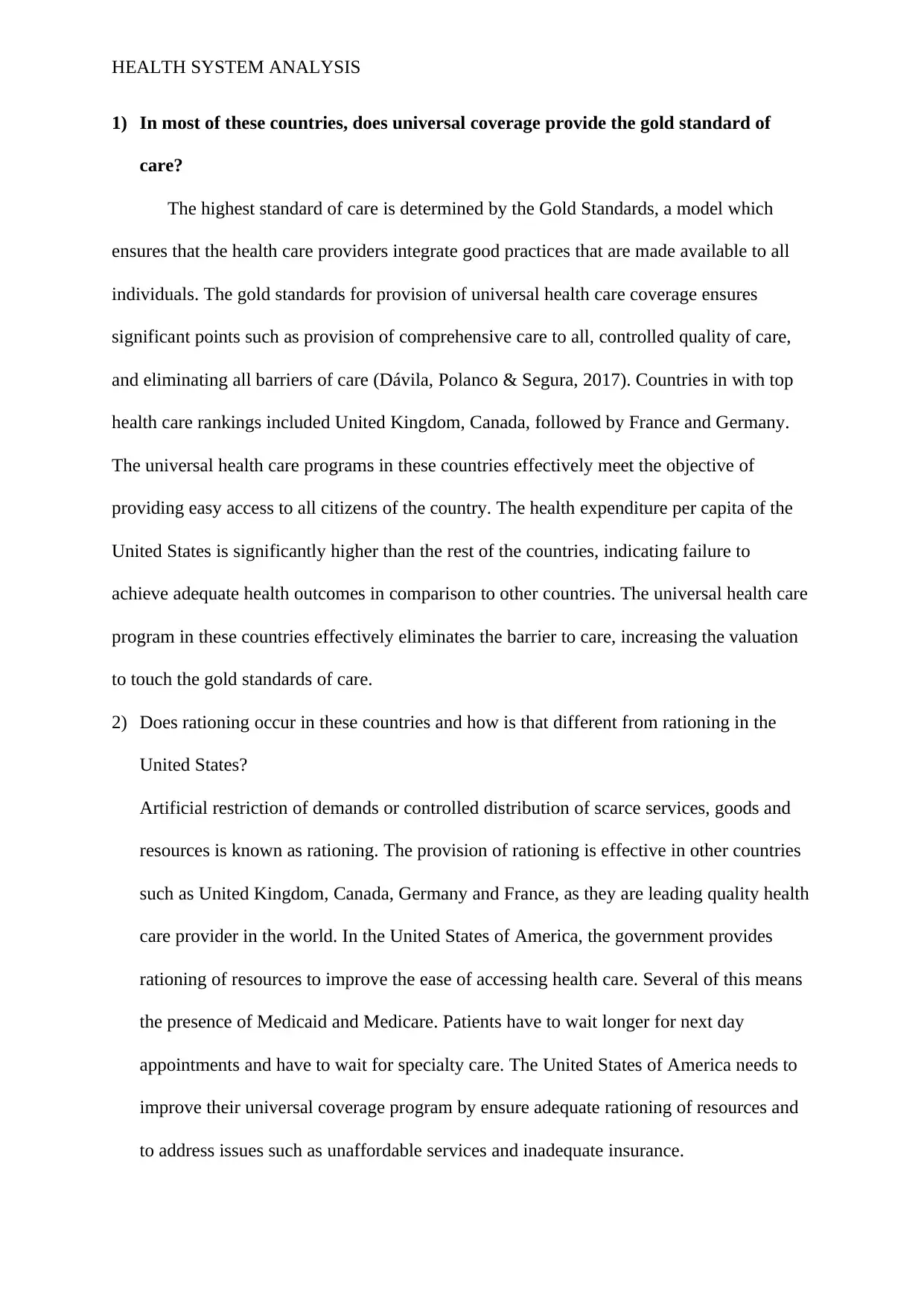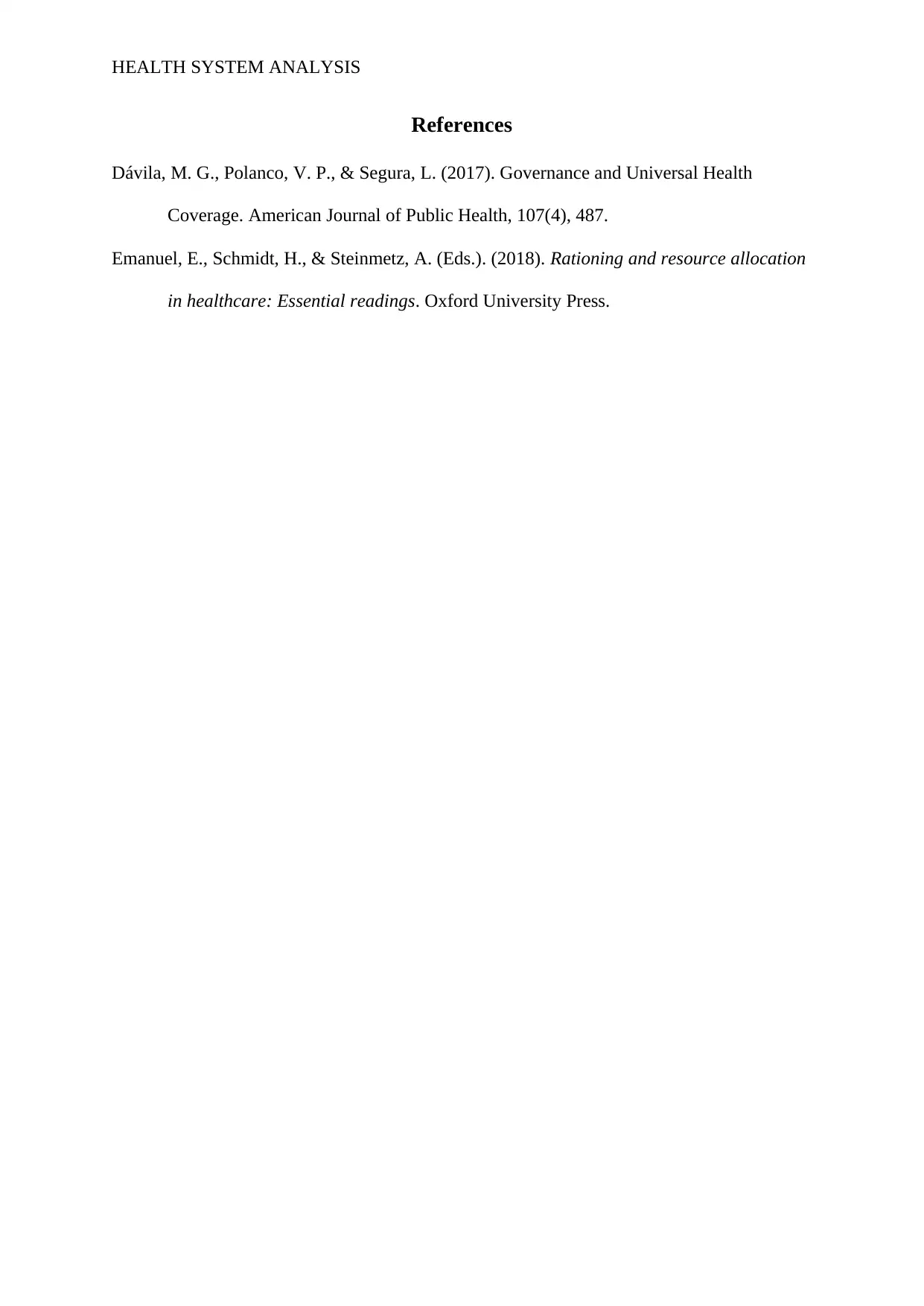Health System Analysis: United States vs. Other Countries
VerifiedAdded on 2022/08/18
|3
|437
|13
Report
AI Summary
This report analyzes health systems, with a particular focus on universal healthcare and rationing of resources. It explores the concept of 'gold standards' in healthcare, examining how countries like the United Kingdom, Canada, France, and Germany provide comprehensive care and eliminate barriers to access. The report highlights the higher per capita health expenditure in the United States and its implications, suggesting a need for improved universal coverage. It also discusses the practice of rationing in different countries, contrasting the approaches of the United States with those of other nations. The United States government provides rationing of resources to improve the ease of accessing health care. Several of this means the presence of Medicaid and Medicare. Patients have to wait longer for next day appointments and have to wait for specialty care. The report concludes by emphasizing the importance of effective resource allocation and addressing issues such as unaffordable services and inadequate insurance to improve healthcare outcomes in the United States.
1 out of 3






![[object Object]](/_next/static/media/star-bottom.7253800d.svg)